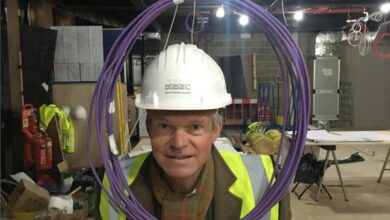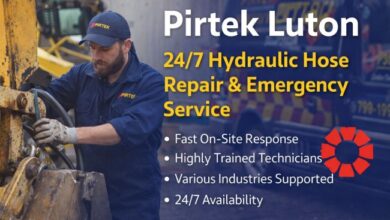Why Restaurant Ventilation Cleaning Is Critical During UK Heatwaves

Rising Temperatures and Kitchen Safety: The Heatwave Challenge
Restaurant kitchens are naturally hot environments, but during a UK heatwave, temperatures can become extreme. This raises serious safety concerns, particularly when it comes to grease-laden extractor fans and ventilation systems.
Extractor fans work constantly to remove heat, smoke, and airborne grease from cooking areas. However, without regular cleaning, grease can build up quickly inside these systems. During periods of intense heat, this grease becomes even more hazardous. Grease is highly flammable, and when combined with soaring kitchen temperatures, the risk of fire increases significantly.
Heatwaves also put extra strain on extractor systems. If the fans are clogged with grease, their ability to remove hot air is reduced. This makes the kitchen even hotter and further increases fire risks. The result is not just uncomfortable conditions for staff but also a major safety hazard.
With hotter summers becoming more common in the UK, it is vital for restaurant owners to understand the link between extreme heat and the dangers of neglected ventilation. Proper maintenance and cleaning are essential to prevent fires and keep kitchens safe during high temperatures.
The Hidden Risks of Neglected Ventilation Systems
During heatwaves, the dangers hidden inside restaurant ventilation systems often go unnoticed. Grease, smoke particles, and debris build up inside extractor fans and ductwork over time. When temperatures rise, this accumulated grease becomes far more volatile, increasing the likelihood of fires.
Many restaurant owners underestimate just how much strain their ventilation systems endure during the summer months. With high outdoor temperatures and busy kitchen activity, extractor systems have to work harder to remove hot air and grease-laden vapours. When airflow becomes restricted due to blockages or heavy grease deposits, systems can overheat. This not only affects the working conditions in the kitchen but also creates a serious fire hazard.
Additionally, poor ventilation can lead to unpleasant smells, visible smoke, and even smoke escaping into dining areas. These problems affect both staff safety and customer experience. This is why ventilation hygiene cleaning is critical for restaurants, especially during the summer. Regular cleaning removes grease build-up, keeps airflow consistent, and reduces fire risks. It also helps ensure compliance with industry regulations and creates a safer environment for everyone inside the building.
Compliance and Insurance: Why Summer Cleaning Is Crucial
Restaurant kitchens are subject to strict fire safety regulations, and these requirements become even more important during heatwaves. With hotter conditions increasing the risk of fire, local authorities and insurers expect kitchen operators to take proactive measures to maintain ventilation systems.
Regulations such as TR19 guidelines set clear standards for cleaning kitchen extract systems. Failure to follow these rules can lead to serious consequences. If a fire breaks out and investigations reveal that the ventilation system had not been properly maintained, insurance claims may be denied. This leaves business owners responsible for costly repairs and potential legal action.
Many insurers and safety officers also require evidence of maintenance, particularly during high-risk periods like summer heatwaves. One common method to verify system performance is the ventilation smoke test. This test checks whether airflow through the extract system is functioning correctly and highlights any blockages or defects that could lead to overheating or fire.
By staying compliant and scheduling inspections, restaurants can protect their business, staff, and customers. Investing in proper ventilation maintenance is not only a safety measure but also a way to remain fully covered under insurance policies.
High-Risk Locations: Kitchens That Need Extra Care in Heatwaves
Not all restaurant kitchens face the same level of risk during heatwaves. Certain locations are far more vulnerable to ventilation issues and need special attention to avoid serious hazards.
Here are some examples of high-risk restaurant kitchen locations:
- Basement Kitchens: These kitchens often have little to no natural airflow, making them heavily reliant on extractor systems. During heatwaves, these systems struggle to manage the additional heat load.
- Older Buildings: Many older properties have outdated ventilation systems that cannot cope with modern cooking demands, especially during high temperatures.
- Large-Capacity Restaurants: Busy venues that serve large numbers of customers produce more heat and airborne grease, increasing the strain on ventilation systems.
- Takeaway-Heavy Kitchens: Kitchens with high turnover and frequent frying or grilling are especially prone to grease build-up and overheating risks.
During hot spells, it is essential for these sites to carry out thorough inspections and maintenance. One effective method is ventilation smoke testing, which helps to detect hidden airflow problems before they become serious issues.
Focusing on these high-risk locations helps prevent ventilation failures and reduces the chance of fire or kitchen shutdowns during extreme heat.
Proactive Cleaning: Protecting Kitchens and Staff Health
Proactive cleaning and maintenance of restaurant ventilation systems are essential during heatwaves. Waiting until problems appear can put both staff and the business at serious risk. By the time visible issues arise, such as excessive heat, smoke, or unpleasant odours, grease build-up may already have reached dangerous levels.
Regular cleaning prevents grease accumulation in extractor fans and ductwork, reducing fire risks and improving airflow. This helps maintain a safer and more comfortable kitchen environment, even during extreme heat. Staff can work more efficiently and safely when the temperature is kept under control and ventilation systems function properly.
Planned cleaning schedules also minimise the chance of unexpected system breakdowns, which can cause costly interruptions to restaurant operations. Many restaurants choose to partner with professional commercial cleaning services to manage this process. These services can tailor cleaning plans around seasonal risks, ensuring ventilation systems stay compliant and effective throughout the summer.
By taking a proactive approach, restaurant owners can protect their kitchens, maintain staff well-being, and focus on serving customers without worrying about the hidden dangers caused by neglected ventilation systems.



